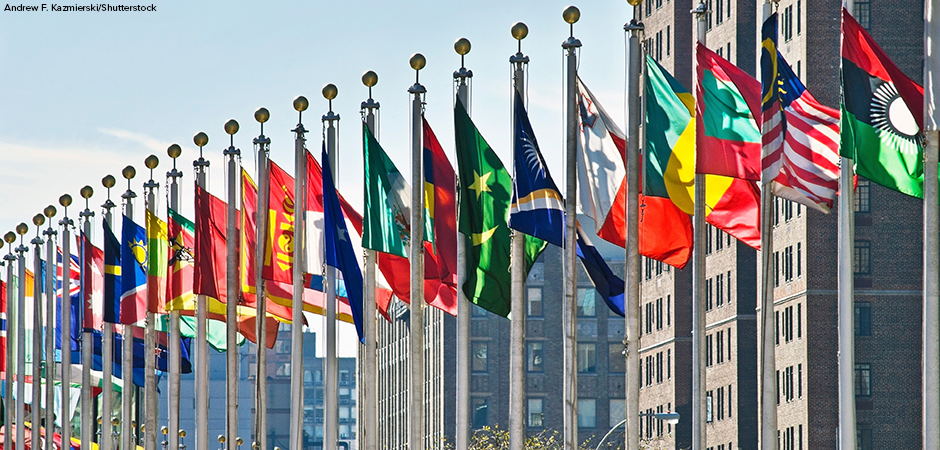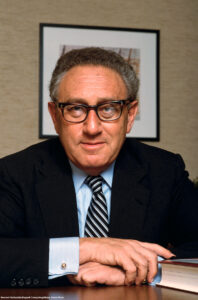
Henry Kissinger, a prominent figure in American foreign policy for over 50 years, died at the age of 100 on November 29, 2023. He was known for his influential roles as secretary of state and National Security Advisor to Presidents Richard Nixon and Gerald Ford.

Kissinger was born in Fürth, Germany, in 1923. The Kissinger family was Jewish and experienced persecution from Adolf Hitler’s government in the 1930s. The Kissingers fled Nazi Germany for the United States in 1938. Kissinger was drafted into the U.S. army in 1943 and served in World War II. While in the army, he witnessed firsthand the horrors of the Holocaust. During the Holocaust, Nazi Germany murdered six million Jews. The army unit that Kissinger served in liberated starving Jewish prisoners at a work camp near Hanover, Germany.
Academic and Government Service
After the war, Kissinger returned to his university studies. He graduated with a Ph.D. from Harvard University in 1953, where he focused on the history of diplomacy. Kissinger remained at Harvard as a faculty member. He built a reputation as an expert on diplomacy and foreign policy. Kissinger believed that the purpose of diplomacy was to avoid war rather than to transform or change countries. He focused on developing relationships between countries rather than influencing the politics within them. President Richard Nixon chose Kissinger to be his National Security Advisor in 1969. He would become Nixon’s Secretary of State in 1973.
In these roles, Kissinger influenced significant world events. Kissinger arranged for President Nixon to visit China in 1972. It was the first time a U.S. president visited the communist country. Kissinger also encouraged discussions with the Soviet Union to reduce the threat of nuclear war. Both policies established more peaceful relations between the United States and these communist nations. In addition, Kissinger received the Nobel Peace Prize in 1973 for his role in negotiating a ceasefire between the United States and Vietnam during the Vietnam War.
A Controversial Legacy
Despite these achievements, some of Kissinger’s foreign policy strategies were controversial. Kissinger supported a bombing campaign in Cambodia during the Vietnam War in the early 1970s. Though Cambodia borders Vietnam, the United States was not at war with Cambodia at the time. Kissinger, however, argued that the communists in North Vietnam were sending troops and supplies through Cambodia into South Vietnam. Critics argued that Kissinger’s actions were expanding the war rather than helping to end it. Kissinger was also less critical to human rights abuses in countries that supported American goals.
Kissinger remained active in international affairs until the end of his life, commenting on current-day politics. He served as an informal adviser to many U.S. presidents after Nixon and Ford.
